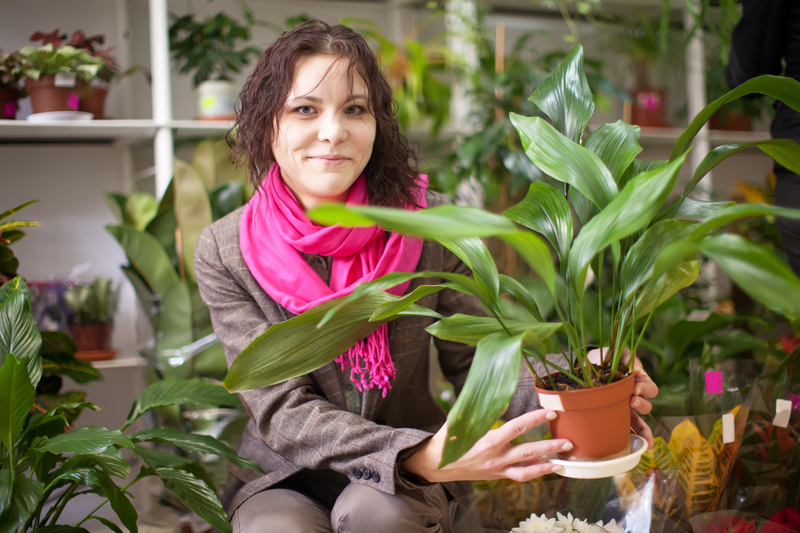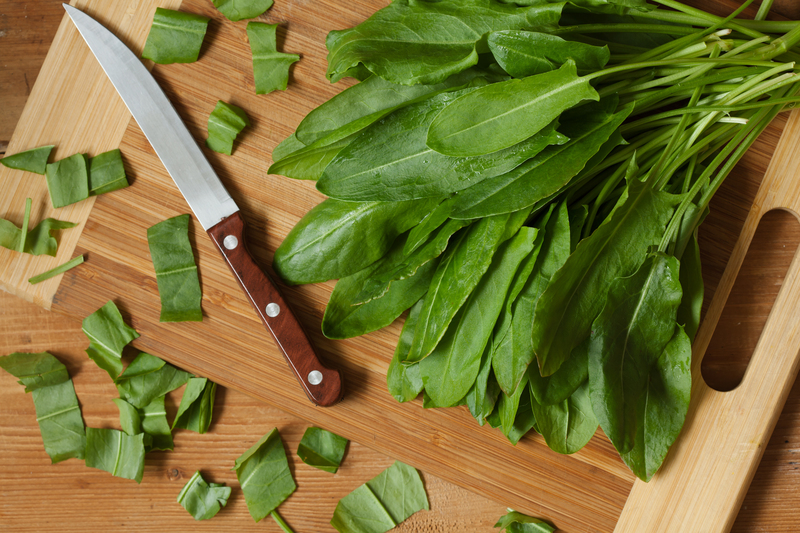Unlock your gardening potential with container strategies
Posted on 17/06/2025
Unlock Your Gardening Potential with Container Strategies
Are you yearning to grow vibrant plants but hampered by limited outdoor space or poor soil? Unlock your gardening potential with container strategies and discover a versatile, accessible way to cultivate flowers, vegetables, and even small trees. Container gardening is not just for seasoned horticulturists--it's a transformative approach suitable for absolute beginners and apartment dwellers alike. In this comprehensive guide, you'll learn how to master container gardening, choose the best plants and pots, optimize your arrangement, and keep your garden thriving all year round.

Why Choose Container Gardening?
Container gardening offers endless possibilities for anyone wanting to garden, regardless of space or expertise. Here's why it stands out:
- Space Efficiency: Containers can fit balconies, patios, windowsills, and rooftops.
- Mobility: Move plants to sunnier spots, indoors during winter, or rearrange your display.
- Control: Manage soil quality, moisture, and drainage with precision, crucial for healthy growth.
- Pest Management: Elevated plants are less accessible to ground pests.
- Creativity: Mix shapes, colors, and heights for artistic flair.
By applying container gardening strategies, you'll not only maximize limited spaces but also enjoy gardening with less risk of overwatering, root diseases, or invasive weeds.
Getting Started: The Essentials of Container Gardening
1. Selecting the Right Container
When you start to unlock your gardening potential with container techniques, the choice of container is pivotal. Consider these factors:
- Material: Terracotta, ceramic, plastic, metal, and wood each have pros and cons.
- Size: Ensure pots are large enough to accommodate plant roots as they mature.
- Drainage: Good drainage holes prevent waterlogging and root rot.
- Style: Match your container style to your home decor and personal aesthetic.
Tip: Use lightweight containers for rooftop or balcony gardens to avoid excess weight.
2. Choosing the Ideal Soil Mix
Quality soil is essential for container gardening success. Traditional garden soil tends to compact in pots, so opt for a specially formulated potting mix that ensures:
- Aeration: Light, fluffy mix allows roots to breathe.
- Nutrient Retention: Ensures steady access to food.
- Drainage: Prevents saturation.
*Mix in compost or slow-release fertilizers for a nutritious boost!*
3. Plant Selection for Container Gardens
When aiming to unleash your gardening potential with container growing, plant selection is crucial. Most plants will thrive in the right-sized pot and conditions, including:
- Herbs: Basil, parsley, thyme, and mint are ideal for kitchen proximity.
- Vegetables: Tomatoes, peppers, lettuce, and radishes all grow well in containers.
- Flowers: Geraniums, petunias, pansies, and begonias add color and charm.
- Small Trees & Shrubs: Dwarf citrus, bay laurel, and hydrangea are beautiful in larger pots.
Pro tip: Choose compact or dwarf varieties for best results, especially on balconies or windowsills.
Innovative Container Gardening Strategies
1. Vertical Gardening
With limited floor space, why not grow upwards? Vertical container gardening uses shelves, wall-mounted planters, pocket gardens, or trellises:
- Plant climbing vegetables like pole beans, peas, or cucumbers.
- Use herb pockets or hanging shoe organizers for compact herbs and succulents.
- Install wall grids or lattice for flowering vines or tomatoes.
*Vertical strategies maximize your gardening space and create a lush, living wall aesthetic.*
2. The Thriller-Spiller-Filler Technique
When designing containers, use the thriller-spiller-filler strategy for variety and density:
- Thriller: Tall, eye-catching plants as the focal point (e.g., ornamental grasses, dracaena).
- Spiller: Trailing plants that drape over the sides (e.g., ivy, sweet potato vine).
- Filler: Medium-height plants to fill gaps and add texture (e.g., coleus, begonias).
By mixing heights, textures, and colors, this strategy transforms a simple pot into a stunning centerpiece!
3. Succession Planting
To extend your harvest and maximize productivity, use succession planting in containers. Plant quick-growing crops like lettuce and radishes first. Once harvested, replace them with tomatoes, peppers, or bush beans. This rotation keeps your pots productive from spring through fall.
4. Companion Planting in Containers
Just as in traditional beds, companion planting helps deter pests, improve growth, and optimize space. Try combinations like:
- Tomatoes and basil--basil can enhance tomato flavor and deter insects.
- Carrots and chives--chives repel aphids from carrots.
- Petunias with beans--petunias repel bean beetles.
*Experiment with different companion plants for healthier, more abundant container gardens.*
Essential Maintenance Tips for Lush Container Gardens
1. Watering Wisely
Since containers dry out faster than garden beds, consistent irrigation is crucial. Follow these tips:
- Check moisture daily, especially during hot weather.
- Water deeply so the entire root ball is hydrated.
- Add mulch or pebbles to the soil surface to slow evaporation.
*Drip irrigation or self-watering planters can automate the process for busy gardeners.*
2. Fertilizing for Growth
Nutrient reserves in containers deplete quickly, so regular feeding is essential. Use an all-purpose, slow-release fertilizer or liquid plant food every few weeks, as directed. Be mindful not to overfeed, especially with synthetic fertilizers.
3. Pruning and Deadheading
Encourage bushier growth and more blooms by snipping off spent flowers (deadheading) and trimming leggy plants. This keeps your container displays tidy and vigorously productive.
4. Managing Pests and Diseases
While containers are less prone to some pests and diseases, monitor regularly for:
- Yellowing leaves (possible overwatering or nutrient deficiency)
- Sticky residue (sign of aphids or scale insects)
- Moss or mold growth (excess moisture, poor air circulation)
Use organic sprays, neem oil, or manual removal for infestations, and always provide adequate drainage and air flow.
Creative Themes for Eye-Catching Container Gardens
Looking to unlock stunning garden displays? Try these thematic ideas:
- Mediterranean Oasis: Combine lavender, rosemary, olive, and citrus in rustic clay pots for a Tuscan feel.
- Edible Kitchen Garden: Plant a mix of culinary herbs and salad greens close to your kitchen door.
- Pollinator Paradise: Attract bees and butterflies with blooming salvia, lantana, marigold, and alyssum.
- Shade Sanctuary: Use ferns, hostas, caladium, and impatiens for lush, leafy containers in low-light spots.
- Succulent Showcase: Arrange cacti, echeveria, and sedum in quirky or minimalist pots for dramatic, low-maintenance decor.
Seasonal Container Gardening Tips
Spring and Summer
These are the prime growing seasons! Plant sun-loving annuals and vegetables, feed regularly, and water often. Rotate and replace early crops with heat-tolerant varieties as the weather shifts.
Fall
Switch to cool-season crops--think kale, pansies, ornamental cabbage, and mums. Bring tender perennials indoors before the first frost.
Winter
Many hardy plants like dwarf conifers, wintergreen, or hellebores can survive outside all winter. Use frost-proof pots and cluster containers to protect roots from freezing. For indoor gardens, continue herbs and leafy greens on sunny windowsills.
Common Mistakes and How to Avoid Them
- Overcrowding Plants: Give roots room to breathe by following plant spacing recommendations.
- Poor Drainage: Drill extra holes if needed. Use pot feet or bricks to raise pots off the ground.
- Neglecting Sun Requirements: Most edible plants need 6-8 hours of direct sunlight.
- Ignoring Regular Feeding: Fertilize every few weeks to replenish nutrients lost through watering.
- Choosing Oversized Plants: In small containers, select compact or dwarf species that won't become root-bound quickly.

Frequently Asked Questions
Can I grow fruit trees in containers?
Absolutely! Dwarf varieties of apple, peach, fig, and citrus thrive in large pots--just ensure they're well-drained and regularly fed.
How often should I repot my container plants?
Plan to repot every 1-2 years, especially for fast-growing species. Refresh potting mix and trim roots as needed to prevent overcrowding.
What's the best way to water container gardens?
Water deeply until water drains from the bottom, rather than just wetting the surface. This encourages strong root systems.
How do I choose the right potting mix?
Look for mixes labeled for containers--these are light, airy, and often pre-fertilized. Never use garden soil, which compacts and suffocates roots.
Final Thoughts: Unlock Your Gardening Potential Today!
Container gardening transforms any available space into a vibrant, productive oasis. With the right container strategies, you can cultivate herbs, vegetables, flowers, and even fruit trees--all without a backyard. Embrace vertical gardening, creative plant combinations, and smart seasonal care to keep your garden flourishing year-round.
No matter your level of experience or the constraints of your living space, container gardening offers a refreshingly accessible approach to home horticulture. Unlock your gardening potential with container strategies and watch your creativity--and your plants--thrive!
Ready to dig in? Start with a single pot, experiment with layouts and plants, and enjoy the endless rewards of gardening--no yard required.



